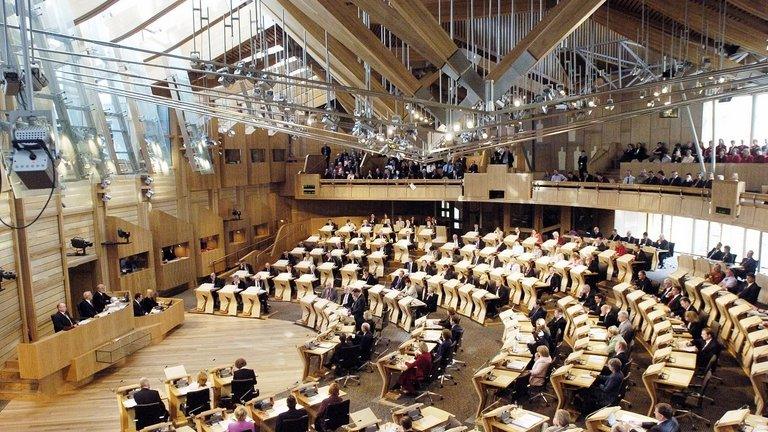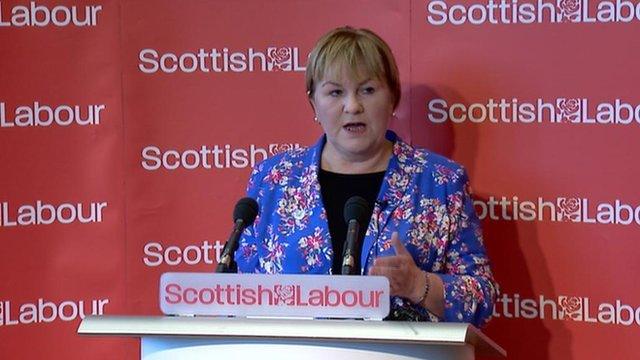Independence referendum: Taking it to the limit on campaign funding
- Published

Campaign spending limits could be a source of disagreement
So where are we anent the discussions on the independence referendum?
Progress, progress - but the deal is not yet entirely done.
And there remains at least one significant item of potential disagreement.
That item is campaign funding - or, more precisely, the legal limits to be imposed upon those seeking to finance efforts to win your support.
To be clear, this does not cover money spent just now by the campaign teams. Within voluntary rules, they can pretty much spend what they like - if they can raise it and justify the cost.
This covers the formal campaign period in the run up to the final vote in October 2014. It is expected that period will be longer than for a general election, perhaps 12 to 16 weeks.
Treated equally
In order to avoid undue influence - in effect, buying votes - it is standard practice for there to be campaign spending limits.
The challenge with the referendum is that it is multi-faceted.
There are two cross-party campaign teams - Yes Scotland (for independence) and Better Together (for the Union). It is anticipated they will be treated equally, with identical spending limits.
The problem arises because the individual political parties will want to pitch in too. Snag is there is a potential absence of equity here.
The UK government wants to follow rules outlined in the past by the Electoral Commission. This would allow parties to spend up to a limit dictated by their immediate past electoral performance.
In short, the more votes they got, the more standing they have, the more money they can spend.
For this referendum, that would leave the SNP with the highest limit. But behind them would be three parties on the Unionist side - Labour, the Conservatives and the Liberal Democrats.
Other supporters of independence - such as the Greens - would have relatively small spending limits: which they may or may not be able to reach.
SNP negotiators have calculated that the combined independence side could be about £1m short of their Unionist rivals over that 16-week period.
They want a revised system allocating smaller, standard limits to each of the parties. It would still leave the independence side short - but by much less.
Plus, they argue, the spending limits generally would be tighter, perhaps to the approbation of the public.
Seeking a deal
There is, to date, no agreement on this.
Some on the Unionist side suggest it may even have to be shelved for later settlement by the Electoral Commission. Others on the Unionist side say the SNP complaints are ill-founded given that the standard rules are drawn up by the commission.
Not sure at this stage where this one is going.
SNP ministers are notably exercised by it and are seeking a deal as part of the memorandum of understanding which will accompany the statutory order transferring the power to hold a referendum to Holyrood.
Right now, I doubt whether this will be allowed to thwart the signing of an agreement next week. The impetus is substantial.
But it is a problem.
- Published4 October 2012

- Published2 October 2012
